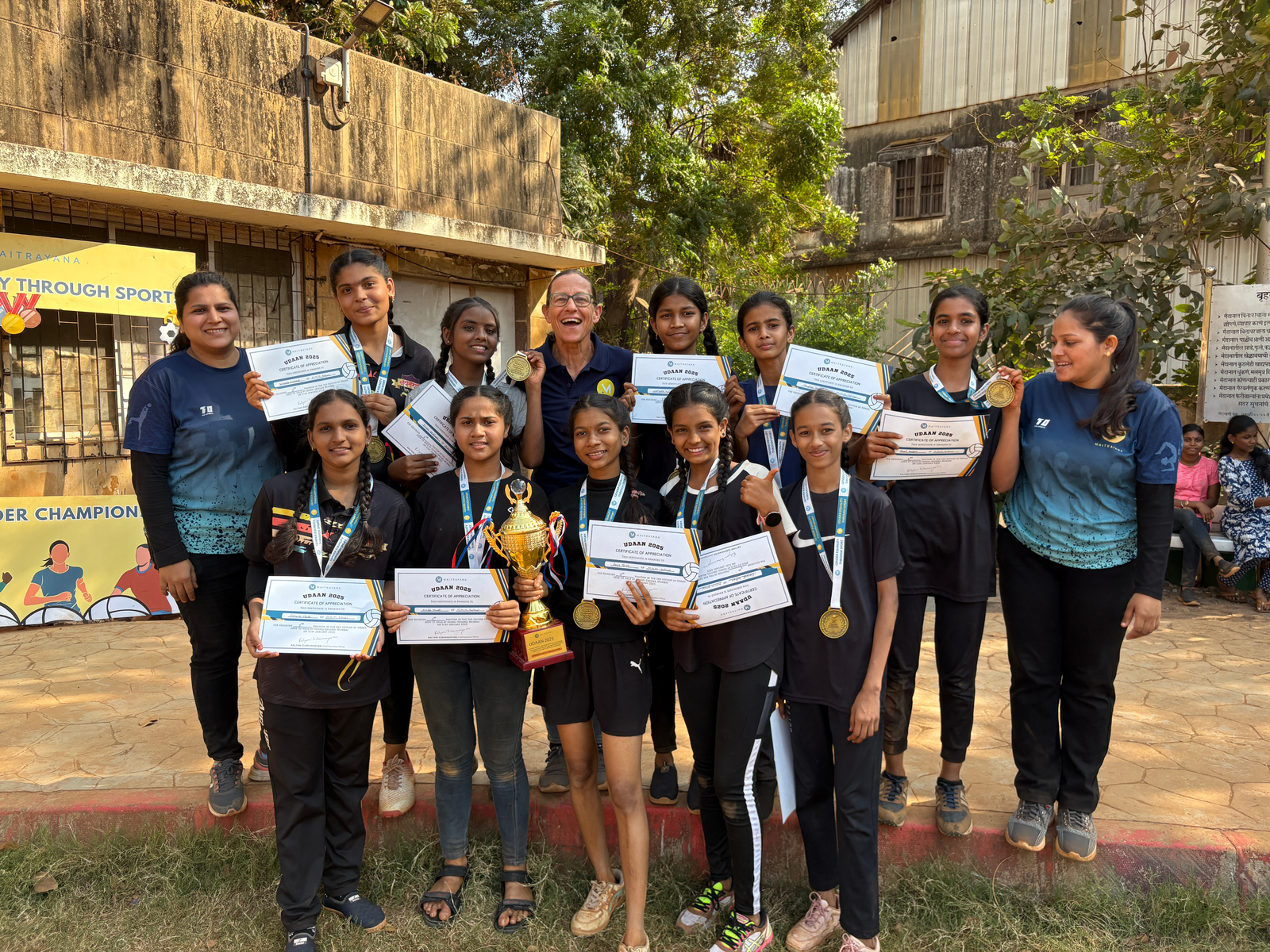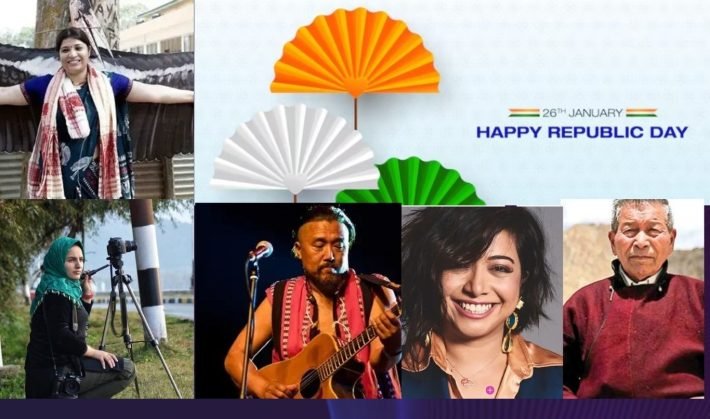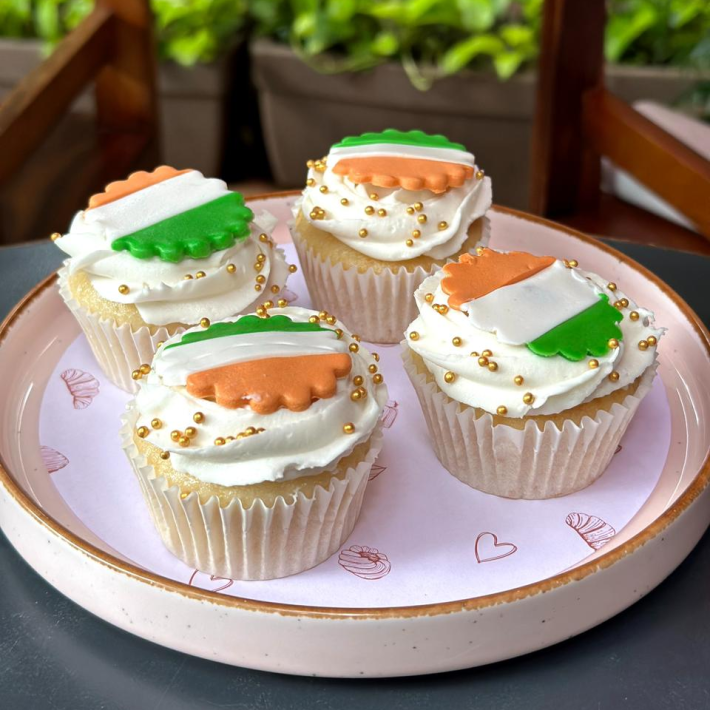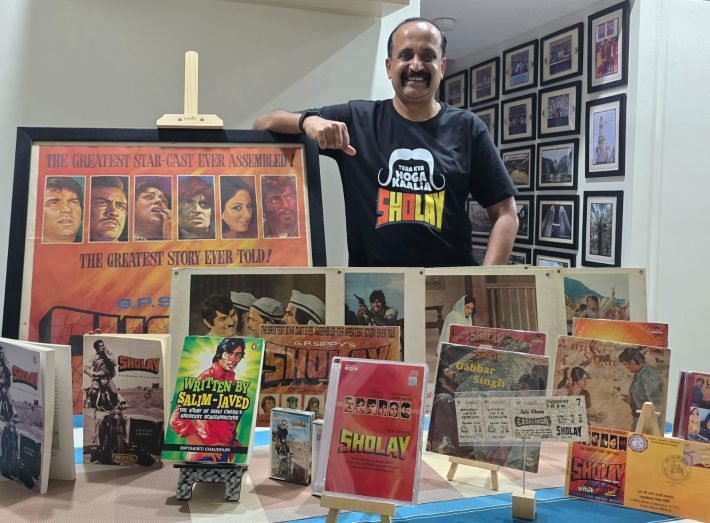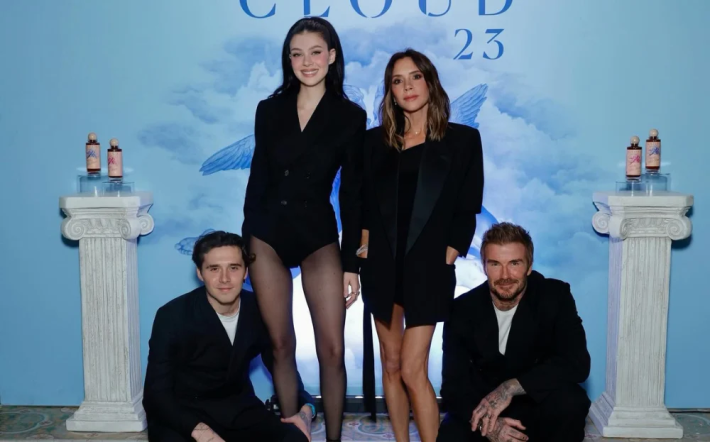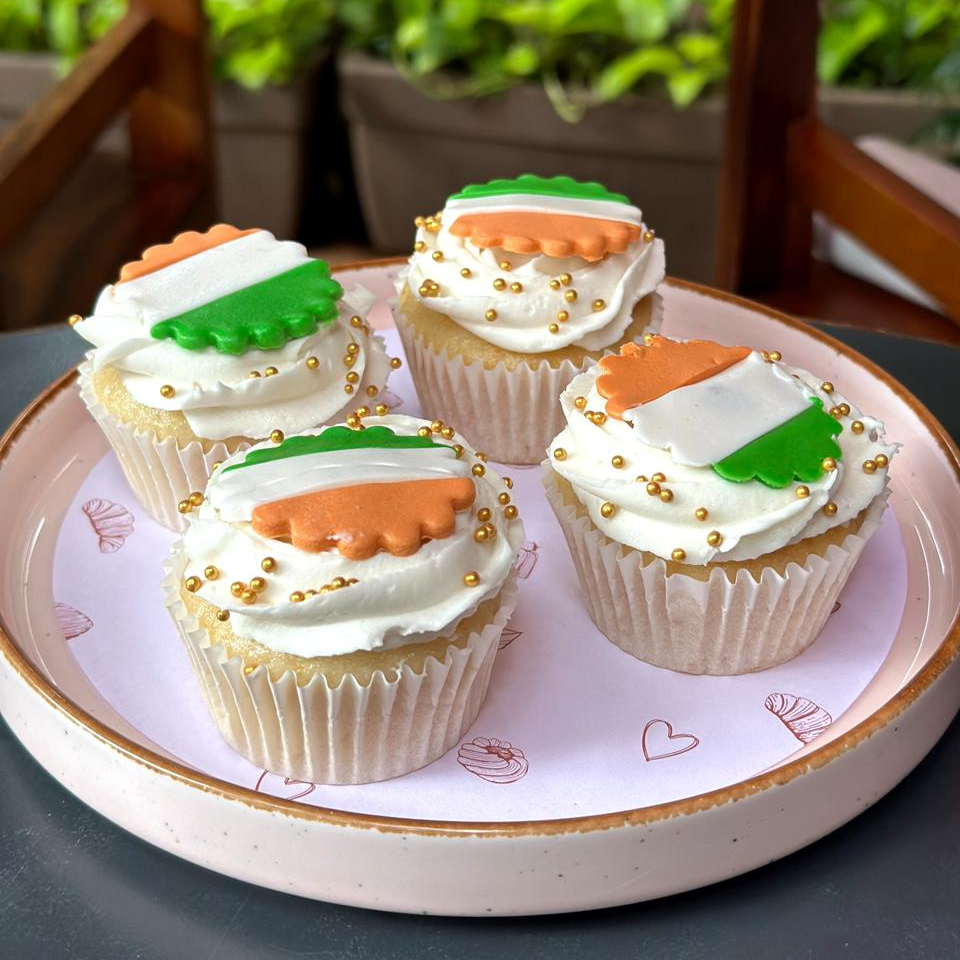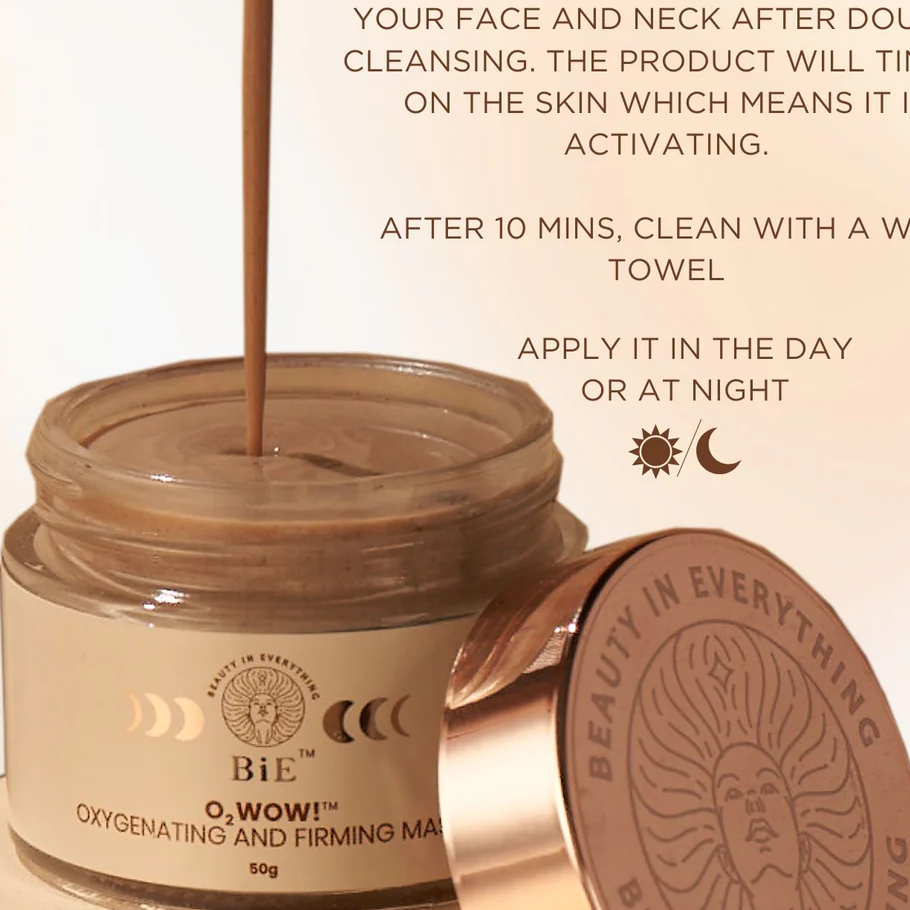When I first met Corina van Dam or Cocky, as she’s fondly known at an event hosted by the enterprising Nawaz Singhania, I had no idea that this poised, smiling woman was a force of nature in the world of sport, social change, and Ironman triathlons. But within moments of speaking to her, it was evident that Corina doesn’t just run races… she rewrites narratives.

From the football fields of the Netherlands where she kicked off her journey in a male-dominated sport, to the villages of India where she now champions girls’ right to play, Corina has spent over four decades breaking barriers, culturally, physically, and emotionally. She is an Ironman world winner 2023 (age group F55-59), a psychomotor therapist, and an unflinching advocate for using sport as a tool for empowerment and mental wellness.

Her work with Maitrayana, where she helps adolescent girls discover their strength and agency through netball and life-skills training, is a reflection of her belief that every girl deserves the right to play… and to dream. Whether she’s swimming from Gateway of India to Atal Setu or rallying young women in under-resourced schools to take up space, literally and figuratively, Corina does it with passion, perseverance, and a lot of heart.
Corina’s story is more than inspiring… it’s a call to action for every woman who’s been told she doesn’t belong on the playing field, for every girl who’s been silenced by societal norms, and for every human being who believes sport can be a catalyst for profound change. Cocky van Dam is living proof that it can. …And she’s just getting started. In an exclusive interview with Sumita Chakraborty, Editor-in-Chief, TheGlitz, the intrepid Corina van Dam talks about her journey, her battles, and her unstoppable belief in the power of sport to transform lives. Read on…
Over To Corina ‘Cocky’ van Dam

Corina, you’ve worked extensively in both Europe and South Asia, how do cultural perceptions of mental health and sport differ between the Netherlands, Kenya, and India, and how have these differences shaped your approach?
Corina: It is now almost 45 years ago that I started understanding the connection between the mind and body which was at that point of time not yet in the mainstream in the Netherlands. So, in that sense, India has probably been ahead of the west. But I think that recognising mental health, destigmatising psychiatric disorders and developing different kinds of treatment and care have been prioritised in that part of the world at an earlier point of time.
I started playing football in 1979 when football was a male dominated sport in the Netherlands. While my parents supported me fully, the society saw girls playing football as girls trying to be boys and women who wanted to take away what was men’s property. We were called lesbians or people just said that women’s football was awful to watch. So, for me, sport has always been an opportunity to break barriers, to be the first, the best and show the world what we are capable of but also by paving the way for other girls to join and just enjoy playing…! And over the years, that is what I have continued doing.

I currently work for Maitrayana where we use sport as a tool for girls’ and women’s empowerment. We implement netball and lifeskills programmes with adolescent girls and young women where we focus on developing their skills to exercise their rights. One of these rights is their right to play. Even today, there are many girls in India who never get a chance to play sports because they go to resource poor schools but more often because their environment limits their opportunities and freedom to do so, especially when they reach puberty.
What drew you to the intersection of sport and mental health in the first place, was there a defining moment or experience that made you choose this path over more conventional roles in either field?
Corina: When I was 16 years old, I started my training to become a sports coach. A couple of months into the course, I realised that I was not excited about teaching children or adults the technical aspects of sports for the rest of my life. The defining moment was when I heard someone speak about the use of sport as a tool for change. That changed everything for me. The fact that my sister worked with psychiatric clients and I loved listening to her experiences, brought sport and mental health together. I did my internship in a psychiatric hospital and the next 20 years I worked as a psychomotor therapist in different psychiatric settings.

Your work uses sport as a therapeutic tool for individuals with psychiatric and personality disorders, can you share a moment that fundamentally challenged your belief in the process, and how you overcame it?
Corina: I think, the work has always been both been challenging and rewarding. I have never really doubted the power of sport or body movement but was probably more concerned about my limitations in executing the process. When I started working, there were hardly protocols, rather rules of thumb so I learned a lot through training, experience, guidance, supervision but with so many unique people, with a variety of disorders, duration and severity of the problems, their personal histories and traits, it was not always easy. Fortunately, I was part of a team of psychomotor therapists as well of multidisciplinary teams which both have been safe learning and support platforms for me.
I remember working with a client with a bipolar disorder who was in a depressive phase and the last thing she wanted was to get out of her bed and move her body. I went to meet her and really started with helping her to look at the signs of life that her body gave her – her breath, an itch, thirst -. After that, I have worked for years with her, she never missed a session. She became the best advocate for how movement is a sign of life and how moving – in her case cycling – helped her to find her balance between manic and depressive episodes.

What systemic or institutional barriers do you encounter most frequently when advocating for women’s participation in endurance and triathlon sports in India, and what strategies have proven most effective in dismantling them?
Corina: The barrier is always patriarchy. Like it was when I started playing football, with the girls I worked with in Kenya, the girls I’m currently working with in Maitrayana or my female friends in the sport communities. The barriers for girls and women in India are huge: concerns about safety, sport clothes to wear, breakfasts that need to be cooked, children that need tuition or go to school, visitors, in-laws, the idea that you can’t work out during your period. When we did regular Pinkathon sessions, the women were always concerned that they we were too loud at 6.30 am in the morning: the fear to be seen and heard. There is a build instilled lack of confidence. Many girls and women still think that sport is not where they belong….! Endurance sport and triathlons need a lot of time for exercise. And that is what women do not have.
Besides time intensive, triathlons are also expensive. You need equipment and training opportunities for three sports, the races are always outside Mumbai and you’ll need at least one day preparation before race day. But most of all. you need to master three sports. I know that I am privileged. I have played sports all my life. I learned swimming when I was 6 years old and have cycled since I was a kid. So, taking up triathlon was not very difficult. And I have the time, the money and I make my own decisions.
I always try to encourage and support other women to take up sport. Empowering women through sport is my profession and my passion. Perhaps being a role model as an older woman in sport has been my most significant contribution.

Endurance sports require not just physical strength but deep mental resilience. How has your background in mental health influenced your personal approach to extreme challenges like the Ironman or 24-hour races?
Corina: I’m not sure if there is a connection between my interest in sport & mental health and endurance sports. When I was young, I preferred outdoor sports and ball games. I only started running when I was 40+. I think you need some sort of patience, being comfortable with yourself and the silence and solitude, doing monotonous and repetitive movements and not needing the competition with others to motivate you. I only got that when I was older. Now I love my early morning practices, all alone, and to push myself a bit further. With every race and every upcoming challenge. Because I’m still competitive…!
Mumbai has become your home through sport. Can you describe a transformative moment that made you realize you truly belonged… not just professionally, but personally, in this city?
Corina: There are so many moments…! The group of Pinkathon women in Tilak Nagar have always been my family and my home. Whenever there is something to celebrate, they show up with chocolate, cards and hugs. The first time when I ran to NCPA (exactly a half marathon from my house) and at the end of my run, I met people I knew – in a city of millions of people was a great experience…! I’m still amazed, when I came to Mumbai in 2016, I didn’t know anyone.
On my 60th birthday, one month ago, I had hundreds of people sending me wishes. There is one moment that still makes me smile. It was when I completed a full triathlon and someone shared a picture of me getting out of the water after my swim and compared that with a picture from Sarah Connor from the movie the Terminator with the subtitle that I won ‘the war’.
A young, male triathlete understanding my sense of humor, appreciating my accomplishment and being so generous to put me in the spotlight in front of hundreds of other athletes was special. That acknowledgement and understanding of who I am and what I do, that made me really feel part of a community that cuts across the city, age, gender and professions.

With sport being increasingly commodified and elite-driven, how do you ensure that your initiatives remain rooted in inclusion and access for the most marginalized communities?
Corina: Access and inclusion are the reasons that Maitrayana exists….! Sport should be for everyone. Every girl should have a chance to learn through play, to participate in sports. That is where Maitrayana’s work starts. We run our programmes with girls in government- and trust run schools in Delhi, Mumbai and Bangalore, in slum communities where girls don’t have an opportunity to play due to various reasons. The schools are often resource poor, don’t have playgrounds, don’t offer sport.
Public grounds in communities are small and occupied by boys and men who act as if they own the spaces. If girls want to play, they need permission, are teased. So, our programme is focused on building girls’ understanding about their rights and give them opportunities to develop their skills.
We make sure that they can play, become confident in their bodies and start owning the playground as well. This is when and where gender norms are challenged. At some point, the girls find allies who encourage them and that’s when community support grows. Eventually it is about girls being able to exercise their rights to play, education, pursuing a career, making or, at least influencing, decisions in their lives.

What’s the most powerful story you’ve witnessed through your work with Maitrayana that encapsulates the real-life impact of sport for social change especially for girls or women breaking societal norms?
Corina: I see the power of sport for social change every day. My colleagues are young women who have been participants in the programme. They understand the challenges that girls are facing in their families and communities. Each of them has broken barriers, have been the first in their families to continue their education, start working, earning money and then there is no way back. Once young women start earning and contributing to the family, then everything changes and they become part of the decisions that are being made in families. Each of my colleagues are role models in their own unique way.
In my work, I collect impact stories and these stories of change are so diverse..! We have stories of girls who were not allowed to play and now participate in the national games or lead the netball club of 50 girls in their community.
I can tell you about how young Muslim and Hindu girls have come to understand each others’ lives and challenges because of their ownership of the Maitrayana netball leagues, about young girls in Ulhasnagar who are setting an example for adults on how to manage conflict within the family and community.
One of my colleagues told me this week how she created a safe environment and helped a girl to overcome body image issues. Plenty are the stories about girls overcoming shame round their periods, starting conversations with their mothers about the taboos that hinder them. Girls start understanding what gender-based violence is and that they can report it. They support their friends and stand up for themselves and each other.

Looking back on your journey across continents and disciplines, what are the milestones…personal or professional that you feel most define your impact and evolution in this space?
Corina: I’m most proud and happy that everywhere I have lived and worked, I have found a home. I can always go back to the Netherlands or Kenya or at some point India and there will always be people remember me for something. As a professional I am consistent, hold people accountable. I am passionate, driven, have ideas, energy, I’m hard working and I’m always in it for the long haul. As a private person, I like my freedom but also my routines.
I’m content that my career has now spanned 40 years of working with sport as a tool for change and that I have found places where my skills could be used to achieve meaningful change. I have been able to adjust to different cultures, blend in while I’m still a very Dutch person. My colleagues are young, Indian women and see me as a role model. So, I think, contributing to the cause across Europe, Africa and Asia irrespective of my background and age might be what defines me most.

You’ve swum from Gateway of India to Atal Setu, an iconic and grueling feat. Was that swim a social endeavour, a personal challenge, or both? And what message were you hoping to send by doing it?
Corina: The swim from Gateway of India to Atul Setu organised by Mumbai Sea Swimmers was especially a social endeavour for me because it was a relay. With team AC/DC (Avantika Akerkar, Corina van Dam, Dhruv Lanka and Zarir Baliwalla) we swam in turns while the rest chilled on the boat drinking coffee and eating sandwiches. Some of my more challenging swims have been 10 kilometer open water and sea swimming and a 12-hour night swim.
My message is always the same: I want to show women that we can take up sport, that we belong and that we can do things that people might not expect from us. There are husbands, fathers and sons who tell me that they share my achievements with their wives, daughters and mothers and that they encourage them to embrace a healthy lifestyle and that they are ready to support them in their fitness journey. Each of them is a milestone that count for me. Both… in my professional as personal life.

Lastly, what’s next for you?
Corina: I hope I can continue contributing to Maitrayana for a few more years. The organisation is young and there is still a lot that needs to be done to make sure that Maitrayana will be a sustainable institution that can secure enough funding to work towards its vision.
Times are difficult. Globally there is a pushback towards girls- and women’s rights, NGOs are met with a lot of suspicion and the funding landscape is always changing with international funding seemingly drying up. Now more than ever, the social sector needs support from Indian individuals and companies.
My dream has always been (and still is) to cycle across the world. Whenever I stop working, I will hopefully do that and become a nomad in the next phase of my life.
